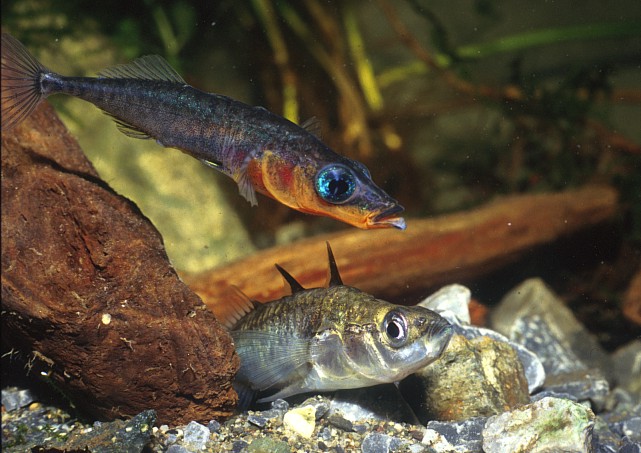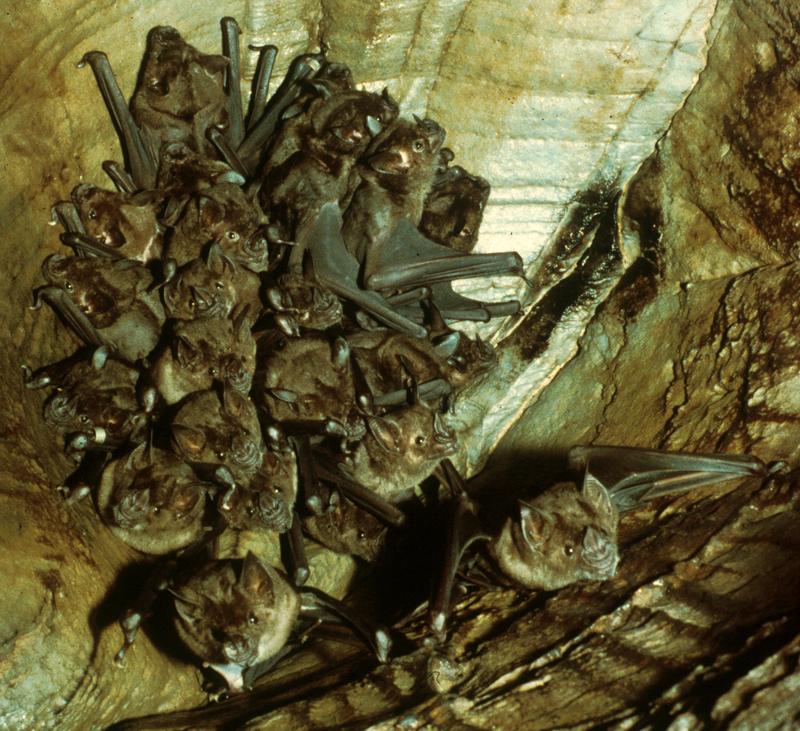
Jenny
Boughman's web page
| Department of Zoology | boughman@zoology.ubc.ca |
| University of British Columbia | (604) 822-5966 (voice) |
| Vancouver, BC V6T 1Z4 | (604) 822-2416 (fax) |
Education --------- Publications --------- Links -------- Course
My Research
My principal interest is in the evolution of communication. I've got three major objectives for my work. First, to understand the causes of diversity in communication signals. To address this question I test models of s ignal evolution as explanations for diverse mating signals in sticklebacks. This work has the long-term objective of integrating several important models of sexual selection - sensory drive, condition dependence, and Fisherian runaway. Second, to understa nd the role divergent sexually selected signals play in speciation. Here I test reproductive isolation between species that differ in male mating signals and female preferences. I also characterize visual signals, female preferences, and perception in mul tiple populations. Third, to understand how signal evolution and ecological adaptation interact in generating new species. Sexual selection operates in an ecological context and ecological divergence figures prominently in most models of speciation. Thus, to address the third question I explore the interaction of sexually selected traits and ecological traits in the evolution of reproductive isolation. Sticklebacks from the postglacial lakes of British Columbia are some of the youngest species on earth -- less than 13,000 years old -- so we can watch speciation happen and do experiments to test the evolutionary mechanisms involved.

My other interest -- in cooperation -- arises from our lack of knowledge about the evolutionary mechanisms that favor cooperation among unrelated individuals. With low levels of relatedness, conflict of interest between social partners should be intense, yet many species do cooperate. Why? And how are cheaters prevented from undermining such cooperation? What role does social communication play? My Ph.D. work explored how learned vocalizations facilitate cooperative foraging in greater spear-nosed bats (flashier even than the sticklebacks and very cool).
My interests and training cross levels of
organization from neurobiology to behavioral ecology to evolutionary ecology;
I integrate these levels in my research to understand how communication
systems evolve.
This fall I move to the Zoology Department at the University of Wisconsin-Madison .
Click here to see my publications

Education
| Ph.D. Zoology | University of Maryland | 1997 |
| M.A. Linguistics | University of New Hampshire | 1985 |
| B.S. Biology, magna cum laude | Southampton College | 1979 |
Fellowships &
Awards
| NSF International Research Fellow | Univ of British Columbia | 1999-2001 |
| NSF-NATO Postdoctoral Fellow | Univ of British Columbia | 1998-1999 |
| NIH-NRSA Postdoctoral Fellow | Univ of Maryland (declined) | 1998-2000 |
| NIH Postdoctoral Trainee | Comparative & Evolutionary Biology Hearing | 1997-1998 |
| Pelczar Award Nomination | Best Dissertation, Univ of Maryland | 1997 |
| Smithsonian Predoctoral Fellow | National Zoological Park | 1995-1996 |
| Dissertation Improvement Grant | National Science Foundation | 1994-1996 |
| Eugenie Clark Research Fellow | University of Maryland, Dept of Zoology | 1995 |
| Best Student Talk | International Bat Research Meeting | 1995 |
| Graduate School Fellow | University of Maryland | 1990-1992 |
| Summer Teaching Fellow | University of New Hampshire | 1983 |
In the public eye
Publications
British Columbia is a gorgeous and fun place. Here are some sites to entice you to come here to hike and camp.
BC Parks Hiking Traveling through BC Free stuff in BC's great outdoorsAnd here are some links to academic sites -- stuff like evolution and animal behavior.
Vancouver Evolution Group Evolution sites Animal Behavior SocietyAnd of course, there are those amazing and wonderful sticklebacks.
Stickleback care Water stuff in Canada
Thanks for checking things out !